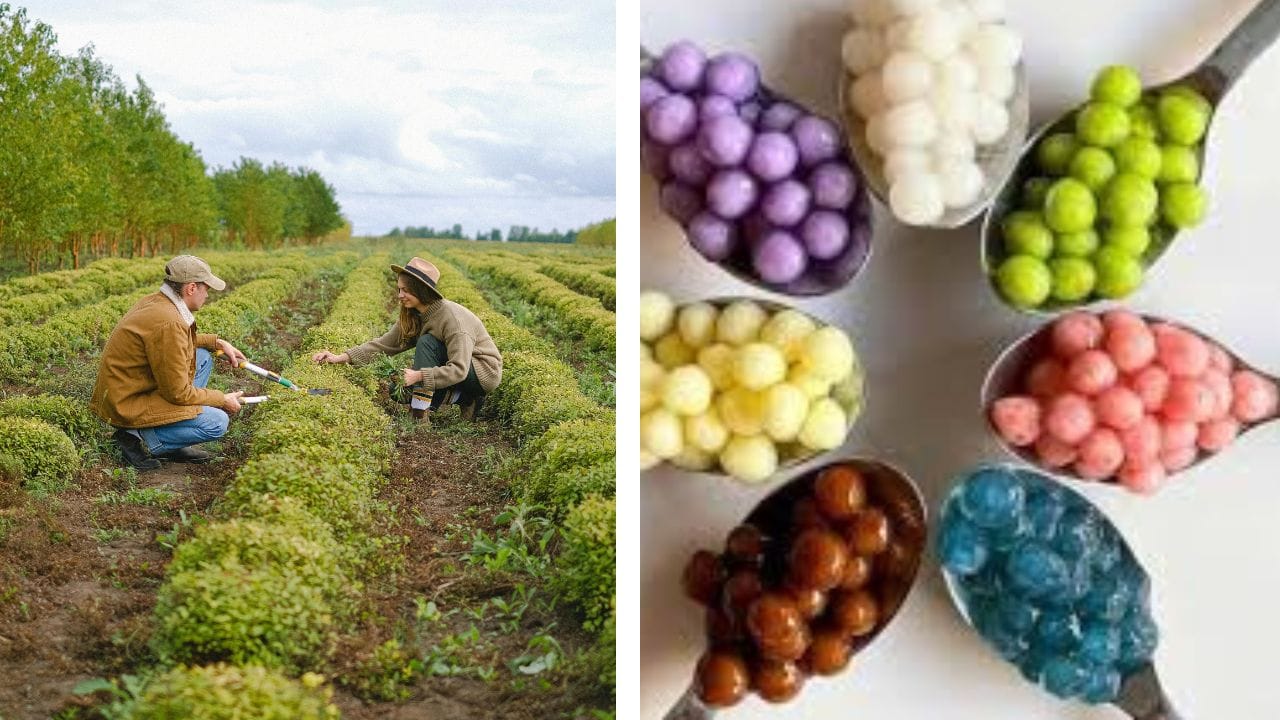Making Boba Tea Protein More Environmentally Friendly
With Boba Tea Protein, not only do you nourish your body, but you also contribute to a healthier planet.

Boba tea, also known as bubble tea, has taken the world by storm, with its unique combination of sweet tea, creamy milk, and chewy tapioca pearls. However, as the popularity of boba tea grows, so does the concern for its environmental impact, particularly when it comes to the protein additives that can be included to enhance its nutritional value. In this article, we'll explore how we can make Boba Tea Protein more sustainable and environmentally friendly.
Key Takeaways:
- Understanding the Environmental Impact: Learn about the ecological footprint of traditional boba tea ingredients and production methods.
- Sustainable Ingredients: Discover alternative, eco-friendly sources of protein and other ingredients.
- Innovative Practices: Explore how changes in production, packaging, and disposal can significantly reduce the environmental impact of boba tea protein.
The Environmental Footprint of Boba Tea Protein
Boba tea's environmental impact starts with its ingredients. The traditional boba pearls are made from tapioca, which is derived from the cassava plant. While cassava is a hardy crop requiring fewer pesticides and fertilizers than many others, the process of converting cassava into tapioca pearls is energy-intensive. Additionally, the milk and protein powders often added to enhance the nutritional profile of boba tea can be resource-heavy in their production.
The protein in boba tea often comes from dairy or soy, both of which have significant environmental footprints. Dairy production is a well-known contributor to greenhouse gas emissions, water consumption, and land use. Soy, while less impactful in some ways, often involves deforestation and the use of genetically modified crops.
Sourcing Sustainable Proteins
One of the most direct ways to reduce the environmental impact of boba tea protein is to use alternative protein sources. Plant-based proteins like pea, rice, or hemp protein are excellent options. These proteins typically require less water and land and generate lower greenhouse gas emissions than animal-based proteins. Moreover, they do not involve the ethical concerns associated with animal farming.
Another innovative protein source is algae-based proteins. Algae, like spirulina, grow quickly, require minimal resources, and can absorb CO2 as they photosynthesize. Integrating algae protein into boba tea could turn a simple beverage into a carbon-capture mechanism.
Eco-Friendly Farming Techniques
Beyond just choosing sustainable protein sources, how these proteins are farmed can also make a big difference. Regenerative agriculture practices, which restore soil health and biodiversity, can be applied to the farming of plant-based proteins. These practices not only improve the sustainability of the crop but also enhance the surrounding environment.
Organic farming methods, which avoid or minimize the use of synthetic pesticides and fertilizers, can also reduce the environmental impact. By supporting organic protein sources for boba tea, consumers and manufacturers can drive demand for more sustainable farming practices globally.
Reducing Energy Use in Production
The production process of boba tea and its ingredients, particularly the tapioca pearls and protein powders, is another area where environmental improvements are necessary. Energy-efficient manufacturing processes can significantly reduce the carbon footprint of these products. This includes using renewable energy sources, such as solar or wind power, in the manufacturing facilities.
Moreover, optimizing the production process to reduce waste can also have a substantial impact. For instance, using every part of the cassava root in the production of tapioca pearls or finding uses for byproducts in protein powder manufacturing can help achieve a more circular economy.
Innovations in Packaging
Packaging is a major environmental issue for boba tea, as it is typically served in single-use plastic cups with plastic straws. To tackle this, boba tea shops can switch to biodegradable or compostable cups and straws. Materials like PLA (polylactic acid), which is derived from renewable resources like corn starch, can be used to make eco-friendly straws and cups.
Additionally, encouraging consumers to bring their own reusable cups and offering incentives for doing so can significantly cut down on waste. Some boba tea shops have already started implementing such programs with great success.
Consumer Choices and Education
Educating consumers about the environmental impacts of their food choices can empower them to make more sustainable decisions. Boba tea shops can provide information about the sourcing and environmental footprint of their ingredients, including the type of protein used.
Furthermore, offering customers more choices in terms of eco-friendly ingredients and practices can help shift consumer behavior. For example, providing options for plant-based milk or sustainably sourced tapioca pearls can cater to environmentally conscious consumers.
Engaging with Suppliers and Regulators
For boba tea shops, engaging with suppliers who prioritize environmental sustainability is crucial. This includes choosing suppliers who use sustainable farming practices, energy-efficient production methods, and eco-friendly packaging.
Additionally, advocating for stricter environmental regulations in the food and beverage industry can drive broader changes. This could include regulations around sustainable farming, energy use in production, and waste management.
Summary
Making Boba Tea Protein more environmentally friendly is not only possible but necessary as we face increasing environmental challenges. By choosing sustainable protein sources, adopting eco-friendly farming and production practices, innovating in packaging, educating consumers, and engaging with suppliers and regulators, boba tea businesses can lead the way in reducing the beverage's environmental impact.
As consumers, making mindful choices and supporting sustainability are impactful ways to drive positive change. If you're interested in incorporating Boba Tea Protein into your routine, simply click below to explore the selected products we've curated for you!

